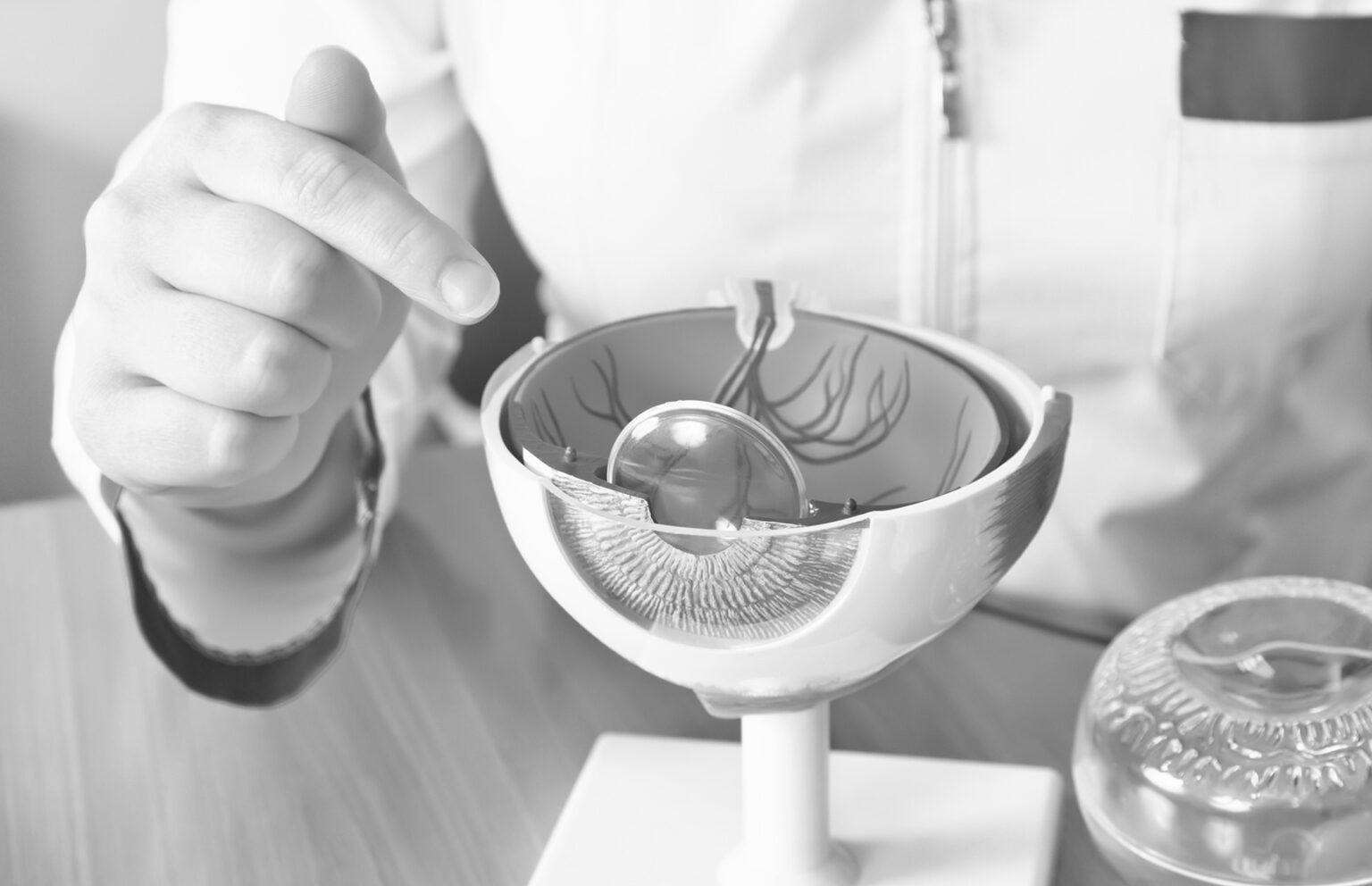
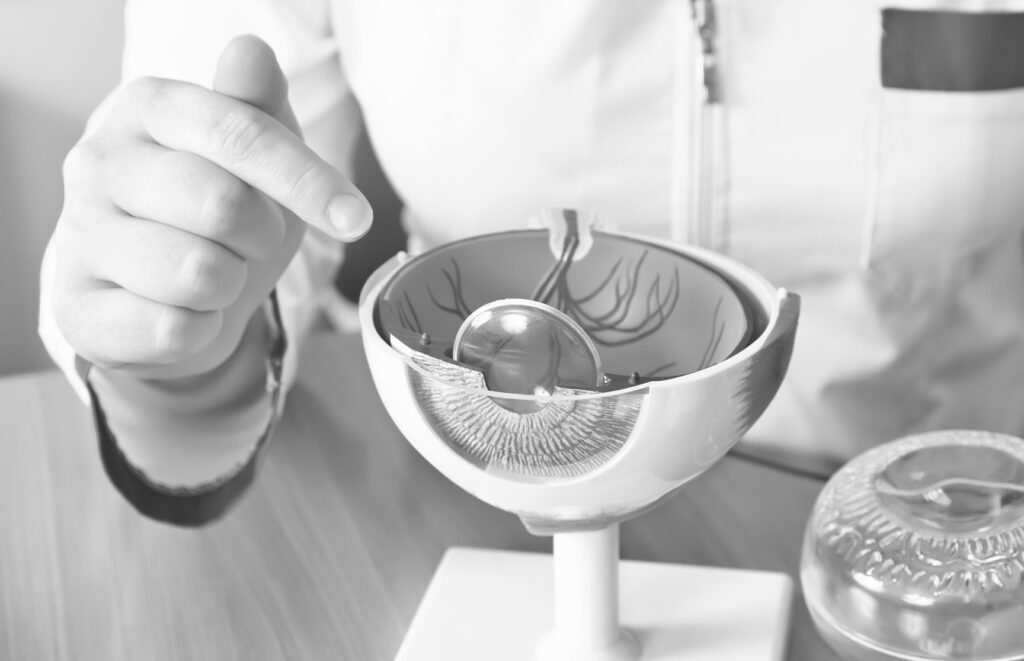
Expert Care for Eye Conditions and Common Eye Problems
Blindness ranks as one of most feared health conditions. At Professional Eye Associates, our ophthalmologists and optometrists are experts in diagnosing and treating a wide range of sight-threatening conditions, and we understand how vision loss and eye pain issues can negatively impact your quality of life and make it difficult to navigate daily tasks. Early detection and treatment of eye problems is key to maintaining healthy vision.
Whether you’re dealing with an acute eye problem or chronic eye disease, our experienced team provides customized, compassionate eye care. We’re dedicated to helping our patients see the world more clearly. Don’t let eye problems go untreated–many eye conditions become worse over time without intervention.
Common Eye Diseases and Conditions
Eyes are complex and sensitive organs, making them susceptible to a wide range of conditions and diseases. Our eye care professionals are here to help you understand, manage, and fix these issues. Learn more about some of the most common eye conditions and find out how we can help manage your eye health and keep your vision sharp.
Table of Contents:
Age-Related Macular Degeneration (AMD)
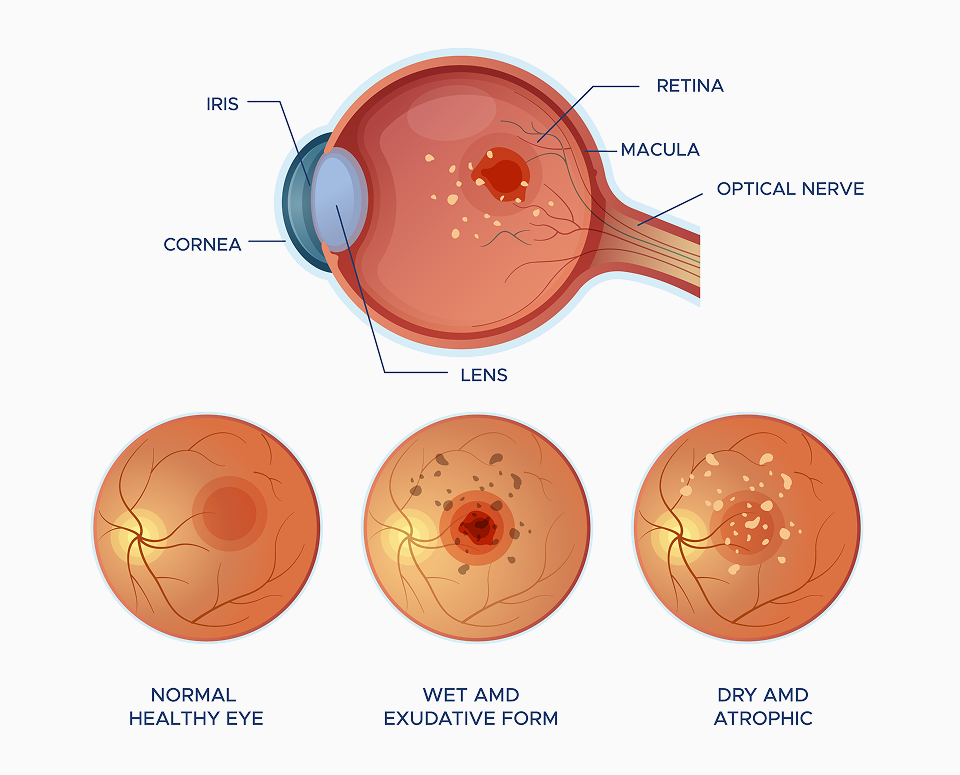
Age-related macular degeneration (AMD) is a progressive eye disease that affects the macula, which is the part of your retina responsible for central vision. There are two forms of AMD: dry AMD and wet AMD. Dry AMD is more common and progresses slowly, while wet AMD is more severe and can lead to rapid vision loss. Risk factors include family history, tobacco use, ultraviolet sunlight exposure, and dietary factors.
AMD typically develops in adults over age 60 and is diagnosed through a comprehensive eye exam . While there is no cure for AMD, treatments such as nutritional therapies can help slow the progression of dry AMD while anti-VEGF (vascular endothelial growth factor) injections can be used to treat wet AMD.
Blepharitis
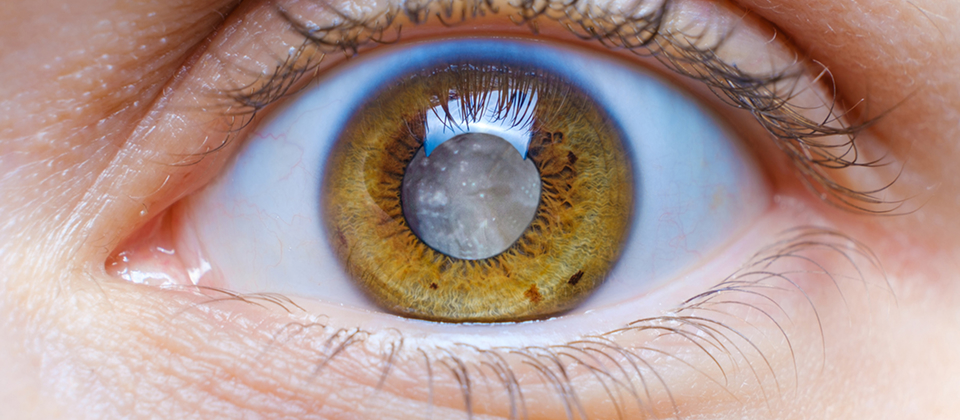
Blepharitis is a common eye condition that causes inflammation of the eyelids. It can be triggered by excess bacteria, changes in the oil glands, dandruff of the eyelid skin, or overgrowth of demodex mites in the eyelash follicles. This condition can occur at any age.
There is no cure for blepharitis, as it is a chronic condition, but there are several treatments to control symptoms. These treatments include warm compresses to loosen debris, eyelid scrubs with diluted baby shampoo, antibiotics, and artificial tears to relieve dryness and irritation. Consistent eyelid hygiene is key to controlling this condition.
Cataracts
Cataracts are most commonly an age-related, progressive condition which begins in our 50s and 60s. With cataracts, the natural lens of the eye becomes cloudy due to changes in the lens proteins, causing blurry vision, glare, and difficulty seeing at night. This eye condition is diagnosed through a comprehensive eye exam that examines the crystalline lens.
The only effective treatment for cataracts is cataract surgery: the cloudy lens is removed and replaced with a clear intraocular lens (IOL). Professional Eye Associates offers advanced, same-day, no stitch cataract surgery with multiple IOL options to suit your vision needs and lifestyle.
Chalazion and Stye
Both chalazia and styes are eye conditions caused by blocked oil glands in the eyelids. This leads to swelling, redness, and occasionally painful lumps around the eye. Styes are similar to pimples, typically tender and inflamed pustules caused by acute infection. Chalazia are usually painless lumps that develop when inflammation subsides.
Both a chalazion or a stye can occur at any age and are diagnosed through an eye exam. Warm compresses and lid hygiene scrubs can help them go away, but sometimes they don’t and require antibiotics. In some cases, an ophthalmologist may recommend drainage if the lump doesn’t improve.
Diabetic Retinopathy
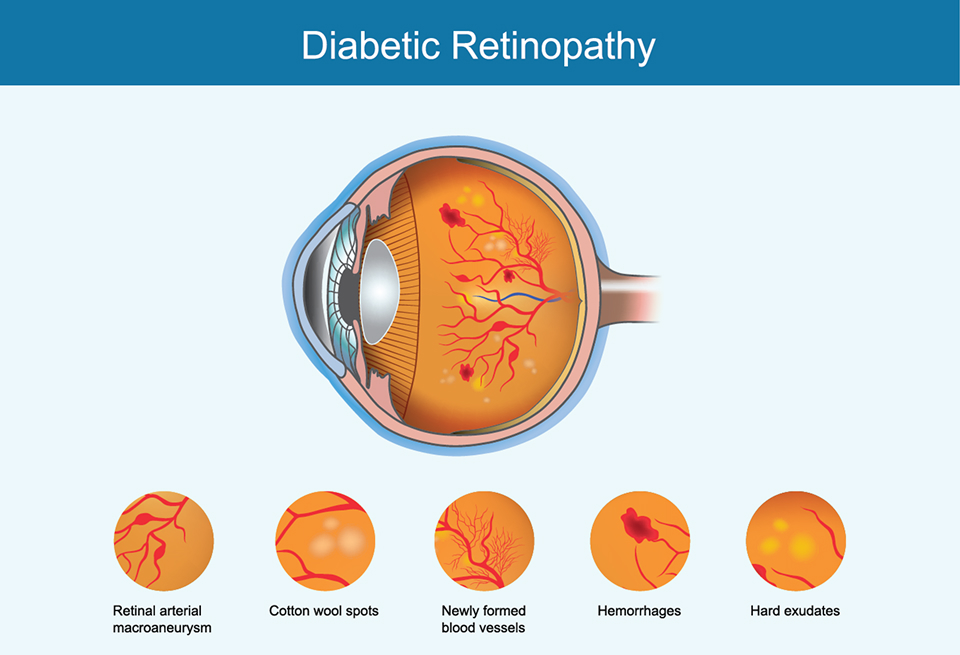
Type 1 and Type 2 diabetics are at risk for vision loss from diabetic retinopathy. Uncontrolled blood sugar and duration of disease are strong risk factors. Early stages often don’t show any symptoms, which is why regular dilated eye exams are crucial to ensure early diagnosis in diabetes patients.
As the disease progresses, the blood vessels in the retina begin to break down and leak, which can lead to blurry vision, floaters, or even blindness. Treatments include laser surgery or anti-VEGF (vascular endothelial growth factor) injections, but the best treatment of all is prevention.
Dry Eyes
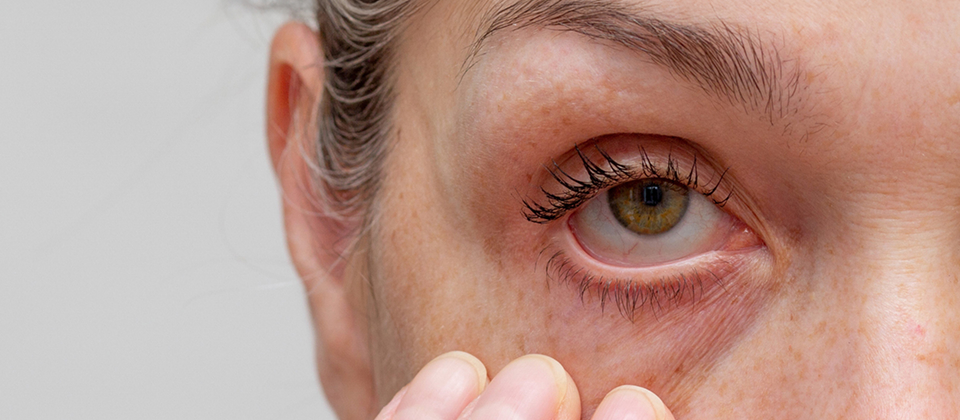
Dry eyes is a common condition caused by reduced tear production or poor tear quality. Dry eye symptoms can develop as early as in your 20s and progresses in severity with age. It affects most older adults, especially women experiencing hormonal changes (such as menopause). There are a wide range of symptoms including stinging, burning, aching, “gritty” sensation, blurry vision, and watery eyes.
Diagnosis involves a comprehensive eye exam to evaluate tear production and eye surface health. Treatments include artificial tears or prescription medications. Lifestyle changes such as taking breaks from screens or using humidifiers can also help alleviate symptoms.
Eye Allergies
Eye allergies are triggered by allergens like pollen, dust mites, pet dander, and mold. This common condition causes red, itchy, and watery eyes and often begins in childhood or early adulthood. The best treatment is to identify and avoid the cause for the allergic reaction. It is natural to want to rub the eyes when they itch, but this is the single worst thing you can do because this triggers more histamine release which makes the symptoms worse. Treatments include over-the-counter antihistamines, decongestant drops, or prescription medications. Reducing exposure to allergens, using artificial tears, and applying cold compresses can also help provide relief.
Floaters
Floaters are an eye condition that causes visual disturbances like specks, spots, or cobwebs drifting across your vision. These disturbances are caused by tiny clumps of vitreous opacities, which are very small structures in the eye. Floaters can develop at any age, but are more common as you get older.
Floaters are diagnosed through a comprehensive eye exam. Although most floaters are harmless, there is a specific form of floater called a posterior vitreous detachment (PVD) which occurs when the vitreous separates off the retina. PVDs have a small but real risk for as associated retinal tear which can lead to retinal detachment and blindness. Prompt attention with an eye doctor is advised to prevent this complication. Persistent and stable floaters can be treated successfully with laser vitreous floater-lysis.
Glaucoma

Glaucoma is an eye disease that damages the optic nerve due to increased eye pressure. It can occur at any age, but is more common in adults over 40. There are two main types of glaucoma: open-angle glaucoma and narrow-angle glaucoma. Open-angle glaucoma develops gradually and is often symptomless, which means early detection is key to preventing further nerve damage and vision loss.
On the other hand, narrow-angle glaucoma is a sight threatening emergency which results in severe eye pain, headache, and vision loss. Treatment focuses on lowering eye pressure and may include eye drops, oral medications, laser therapy, or surgery to avoid permanent vision loss and further damage.
Low Vision
Low vision is an eye condition defined as vision that is 20/70 or worse. It is most common in older adults due to conditions like macular degeneration or glaucoma and cannot be corrected with conventional glasses or contact lenses.
Diagnosis is provided through a comprehensive eye exam that measures visual acuity and functional vision. Treatment focuses on improving daily life with vision aids such as magnifiers, special glasses, and adaptive technology. Vision therapy can also help maximize remaining sight to significantly enhance quality of life.
Myopia, Hyperopia, Astigmatism and Presbyopia
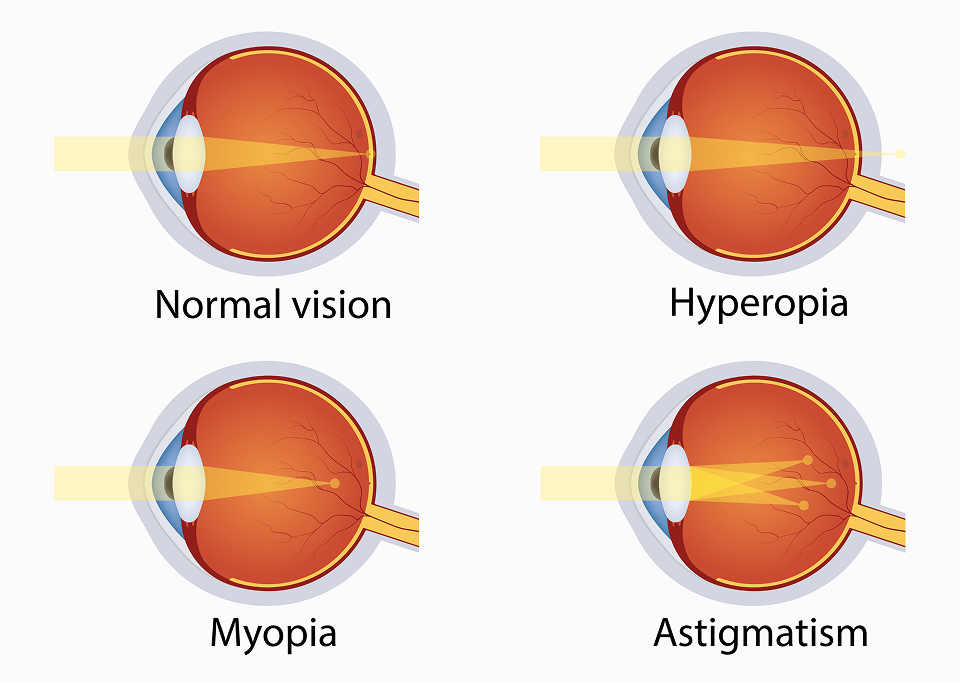
Myopia, hyperopia and astigmatism are forms of refractive error, which occur from a mismatch between the length of the eye and the light bending power of the patient’s optical system. Myopes are called nearsighted, because they can see near objects clearly, but have trouble seeing far. Farsightedness is actually a poor description for hyperopia, because vision is blurry for both far and near objects. Astigmatism causes blurry vision at all distances, because the optical system is shaped more like a football rather than a soccer ball. Treatments include glasses, contact lenses, or surgical options like LASIK.
Presbyopia is an age-related loss of flexibility within the natural lens which reduces range of vision. This can be managed with reading glasses, monovision contact lenses, bifocals, or progressive lenses.
Pterygium
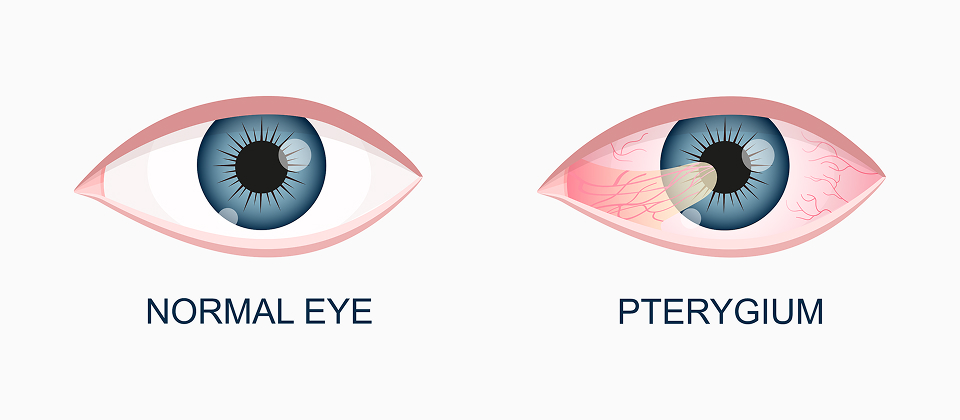
Pterygium is an eye condition caused by prolonged sun and wind exposure that leads to a growth of fleshy tissue on the cornea. Adults in their 20s to 40s who spend a lot of time outdoors are more susceptible to this condition. Mild cases can be treated with lubricating eye drops to reduce irritation, while severe cases that affect vision or cause persistent discomfort may require surgical removal. Wearing UV-protective sunglasses can help prevent pterygium from developing or worsening.
Benefits of Early Detection and Treatment
For many eye conditions and diseases, a comprehensive eye exam is the first step towards diagnosis and treatment. Timely diagnosis allows for prompt treatment. Intercepting eye problems early can help preserve your eyesight, reduce the need for more intensive treatments, and prevent long-term damage or worsening of these conditions.
Routine eye exams are key to early detection. Stopping the progression of issues like glaucoma, diabetic retinopathy, and more can improve your overall quality of life. Schedule an exam today to protect your vision now and for the future.


Take the First Step Towards Healthier Eyes
Professional Eye Associates combines advanced diagnostic technology, compassionate care, and personalized treatment to identify and treat a wide range of eye conditions and eye diseases. Our experienced team of ophthalmologists and optometrists are ready to protect your vision and address your symptoms or concerns.
Remember: early detection can make all the difference in protecting, maintaining, and restoring your vision. Don’t wait for symptoms to worsen–prioritize your eye health today and schedule your first appointment.